by Henry Liao
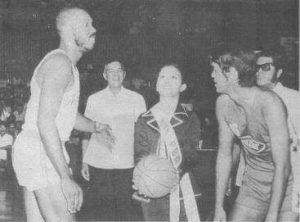
To the Filipinos in general, April 9 is a “red-colored” national holiday for it carries much significance in Philippine history.
On that day, we commemorate the Fall of Bataan to the invading Japanese military forces during the four-year World War II hostilities.
During my younger days, the holiday was called “Bataan Day.” Today, it’s called “Araw ng Kagitingan” or “Day of Valor.”
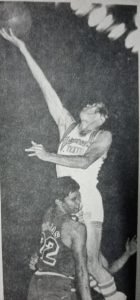
In local sports, the date April 9 also is special to hoops fans. A momentous occasion moment it was forty-six years ago on that day for it marked the birth of professional basketball in the Philippines.
The first game (and playdate) in the history of Asia’s first and oldest pro league, the Philippine Basketball Association, was held on April 9, 1975.
On that day, an estimated crowd of 18,000 trooped to the Araneta Coliseum to witness a doubleheader that featured Mariwasa Noritake vs. Concepcion Carrier and Toyota vs. Universal Textiles. (All four franchises sadly are no longer active in the league now.)
There were nine trailblazing franchises, namely, CFC (Consolidated Foods Company) Presto Ice Cream Makers, Crispa-Floro Redmanizers, Concepcion Carrier Weathermakers, Noritake (Mariwasa) Porcelain Makers, Royal Tru-Orange Orangemen, Seven-Up Uncolas, Tanduay Distillers, Toyota Comets and Universal Textiles Weavers.
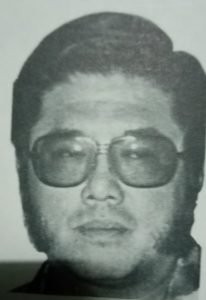
Talking of a leveled playing field, not one of them was related to the other in any way. There were no “sister teams,” so unlike the situation that the league is in now.
Months before their PBA debut, the nine clubs had broken away from the Manila Industrial and Commercial Athletic Association (MICAA), the country’s premier commercial and post-graduate league at the time.
Founded in 1938, the MICAA was organized by companies dealing in sporting goods and equipment and consumer products.
The MICAA enjoyed tremendous success through the early seventies but a major disagreement with the Basketball Association of the Philippines (BAP) – then the country’s amateur basketball-governing body and a member of the International Basketball Federation (FIBA) – over financial matters spurred the group, headed by Mariwasa owner Emerson Coseteng (who would later become the PBA’s founding president), to break its relations with the BAP.
Along with it came the establishment of a professional league that it would call the Philippine Basketball Association in March 1975.
With their professional status, the top players from the PBA were no longer eligible to suit up for the Philippine national team in international competitions (until the FIBA instituted an open-basketball policy in 1989 that has allowed pros to play in the tournaments it sanctions and organizes since the time.)

Leopoldo (Leo) Prieto was named by the PBA Board of Governors as its first commissioner.
Who is Prieto? The genial and well-respected Prieto was once a basketball player at the collegiate and post-graduate levels. He suited up for the De La Salle Green Archers when the Taft Avenue school snared both the NCAA and National Senior (Open) titles in 1939.
Prieto later played and coached the Yco Painters, leading the Don Manolo Elizalde club to several championships in the MICAA.
He was the head mentor of the Philippine national team that finished seventh in the 1956 Melbourne Olympics with a 4-4 record. Among his players were Carlos (Caloy) Loyzaga, Mariano Tolentino, Ramon Campos Jr., Carlos Badion, Loreto Carbonell, Martin Urra, Eduardo Lim and team skipper Antonio Genato.
Prieto served as PBA commish for eight years from 1975 to 1982 for the longest tenure in league history.
The PBA individual and team awards given annually have since been called the PBA Leo Awards in his honor. Prieto died on April 7, 2009 at the age of 88.
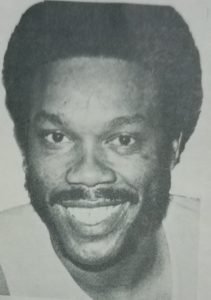
In the opening PBA playdate in Season 1, Noritake whipped Concepcion Carrier, 101-98, and powerhouse Toyota got past U-Tex, 105-101, in the All-Filipino Conference, the initial menu of the three conferences tabled for the season.
Noritake thus became the first team ever to claim a victory in the PBA’s 46-year history although the first points in league annals were scored by an opposing player.
How ironic it was – Three Americans were allowed to see action in the All-Filipino competitions in 1975. They were Israel (Cisco) Oliver (Noritake), Charles Walker (Universal Textiles) and Byron (Snake Jones).
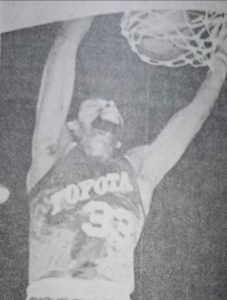
The three players were carryovers from their teams in the old MICAA and gained the approval of the then-PBA Board (to play in the All-Filipino) due to their long-time residency in the country notwithstanding a howl from the Games and Amusements Board (GAB) at the time.
Billy Robinson, a long-time Mariwasa player who eventually got hitched to a Filipina, was recalled to play for the team in the second and third conferences – following a feud between Oliver and management – and he teamed up with James Cornelious as the two imports of the Porcelain Makers in the last two conferences.
The jovial Walker played for the Yco Painters in the old MICAA before U-Tex came-a-calling.

Oliver top-scored for the winning Noritake team against Carrier, chalking up 48 points. “The Rifleman” Adriano (Jun) Papa Jr., a former Crispa Redmanizer and a two-time Olympian (1968 Mexico and 1972 Munich) with the PH national squad, added 17 for the Porcelain Makers.
Carrier got 24 points from “The Ironman” Jaime (Jimmy) Noblezada, 17 from two-time Olympian (1968 Mexico and 1972 Munich) Jaime (Jimmy) Mariano, and 10 from 1972 RP Youth Team member Gregorio (Joy) Dionisio.

Though he played on the losing side, Dionisio, a 5-10 guard, carved his name in the PBA record books as the first player ever to score a field goal in the pro league.
In the main game of the twinbill, Toyota picked up the first win in franchise history behind five Comets with double-digit scores. These are Rodolfo (Ompong) Segura, 23; Francis (Mr. Clutch) Arnaiz, 22; Alberto (Big Boy) Reynoso, 17; Ramon (El Presidente) Fernandez, 13; and Robert (The Big J) Jaworski, 11.
U-Tex was bannered by former national teamers Danilo (Danny) Florencio, Lawrence (Larry) Mumar, Rudolf (Rudy) Kutch and Arturo (Turing) Valenzona. It also had Edgardo (Egay) Gomez, 1972 NCAA Most Valuable Player from San Sebastian College Jaime (Jimmy) Otazu, former University of Santo Tomas hotshot George Lizares and “Haba Haba” Virgilio (Billy) Abarrientos, the smallest player in PBA annals at 5-5 who is an uncle of future PBA star Johnny Abarrientos.
The Weavers’ head coach in the All-Filipino conference was Carlos (Caloy) Loyzaga, undisputedly the greatest player in Philippine basketball history who was The Great Difference” from the 1950s to the mid-1960s.
- GOLD FOR OBIENA? - July 25, 2024
- Diana Taurasi’s Golden Opportunity at the 2024 Paris Olympics - July 10, 2024
- Auerbach’s 12 Favorite Playoff Players - June 5, 2024
